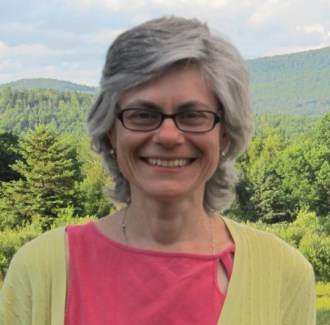 My name is Gail Schechter. I am a co-founder of the newly launched Addie Wyatt Center for Nonviolence Training in Chicago, aiming to create a culture of peace in the region starting with our city and suburban high schools, including Evanston Township High School. From 1993 to 2016, I served as Executive Director of Open Communities, the north suburban Chicago area’s housing, economic and social justice organization. By appointment of former Governor Pat Quinn, I sit in the “affordable housing advocate” seat of the State Housing Appeals Board, the enforcement body for the Affordable Housing Planning and Appeal Act whose passage, I am proud to say, was led by north suburban elected officials. I also serve on the Board of Directors of Chicago Area Peace Action. I have taught graduate courses in public policy and civic engagement for Northwestern University’s School of Professional Studies. Most recently, I authored the definitive history of the North Shore Summer Project and its evolution into Open Communities for The Chicago Freedom Movement: Martin Luther King Jr. and Civil Rights Activism in the North. I was born and raised in New York City and have two children. While most people know me as a community organizer and fair and affordable housing advocate, I’m also an active clarinetist – and an avid reader.
My name is Gail Schechter. I am a co-founder of the newly launched Addie Wyatt Center for Nonviolence Training in Chicago, aiming to create a culture of peace in the region starting with our city and suburban high schools, including Evanston Township High School. From 1993 to 2016, I served as Executive Director of Open Communities, the north suburban Chicago area’s housing, economic and social justice organization. By appointment of former Governor Pat Quinn, I sit in the “affordable housing advocate” seat of the State Housing Appeals Board, the enforcement body for the Affordable Housing Planning and Appeal Act whose passage, I am proud to say, was led by north suburban elected officials. I also serve on the Board of Directors of Chicago Area Peace Action. I have taught graduate courses in public policy and civic engagement for Northwestern University’s School of Professional Studies. Most recently, I authored the definitive history of the North Shore Summer Project and its evolution into Open Communities for The Chicago Freedom Movement: Martin Luther King Jr. and Civil Rights Activism in the North. I was born and raised in New York City and have two children. While most people know me as a community organizer and fair and affordable housing advocate, I’m also an active clarinetist – and an avid reader.
1) Where Do We Go From Here?: Chaos or Community by Dr. Martin Luther King, Jr. (1968)
This year I read all five of Dr. Martin Luther King, Jr.’s books starting with his first, Stride Toward Freedom, his description of the Montgomery bus boycott that launched the Civil Rights Movement, Rosa Parks as the catalyst for this major nonviolent direct action led by African Americans, and Dr. King himself into national prominence. Where Do We Go From Here? is his last complete book and a work of profound wisdom about racial reconciliation that resonates today. Dr. King writes from the vantage point of distress about white backlash to freedom movement gains; African American anger that manifested itself in the Black Power Movement; and the tragic eclipsing of a unified, national push for anti-poverty programs by the Vietnam War. If anything, toward the end of his life Dr. King was even more convinced of the power of nonviolence. He presented our national challenge as a choice between “nonviolent coexistence” or “violent coannhiliation.” He could have been describing himself when he wrote, “Ultimately, a genuine leader is not a searcher of consensus but a molder of consensus.”
